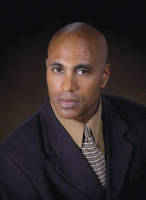Click “Like” to share this with your friends!
Coming into the 2011 season, fourth-year PGA professional Webb Simpson was not much more than an afterthought in the minds of most golf media members and fans alike. That all changed this year when Raleigh, NC, native made an improbable run that included two victories and three second-place finishes. Simpson also finished second in the FedEx Cup and second (behind likely Player of the Year Luke Donald) on the money list with over $6 million in earnings (almost $4 million more than his previous three years combined).
Check out a video that highlights the final playoff hole of Simpson’s second career PGA win earlier this year at the Deutsche Bank Championship by clicking HERE.
And you can view highlights of his first career win at the Wyndham Championship below:
Simpson’s amazing year earned him a coveted spot on the U.S. Presidents Cup Team that faces the International Team this week in Melbourne, Australia.
I had a chance to catch up with Simpson a few weeks ago. The rising PGA star agreed to participate in a book I’m working on for 2012 release tentatively titled Life in the Fairway: What the Game of Golf Teaches Us About Biblical Integrity. I thought it would be good to share some of what Simpson had to say including the reasons he loves golf, why he believes integrity is so important, how his faith impacts his game, and what went down in New Orleans this summer at the Zurich Classic where a penalty ultimately cost him the title:
Chad Bonham: How did you get started playing golf?
Webb Simpson: I started playing when I was eight years old and at the time I was also playing basketball, baseball and tennis. I think more than anything, the way I got into it was that I got better at golf quicker than I did the other sports. And from then on, I slowly dropped the other sports and by the time I was 15, it was only golf. At that point, I knew I might have an opportunity to play in college and I thought maybe once I was in college I could go on to play professionally. Time has gone by pretty quick.
Bonham: What’s your favorite thing about the game?
Simpson: It is universally the best sport for this reason. My dad and his buddies who are all about 10 handicappers can have a match where coming down the 18th hole, to them, is like they’re at the Masters. They’re all square and it comes down to who makes the putt to win. You don’t see a whole lot of 60-year-old men playing two-on-two in basketball. Even when I play with my buddies, I have almost as much fun trying to win five bucks as I do trying to win two million dollars.
Bonham: What about golf keeps you coming back in times when it’s not as fun?
Simpson: You can play video games or board games or card games and it always seems like you can beat the game or perfect it. Well, in golf, you can never perfect it. The lowest round I ever shot was 58 and I felt like I left two shots out there. I missed a six-foot putt on one hole and I parred a par five that was reachable. So I think that element of thinking you can always do better is what keeps people coming back whether they’re an amateur or a professional.
Bonham: You’ve earned a reputation in a short period of time as a golfer that values playing the game with integrity. How did you learn that principle?
Simpson: My parents did a great job of showing me that on and off the golf course and throughout my childhood years. Our deposit of the Holy Spirit living inside of us, more than anything, has allowed me to make those tough decisions. It’s happened probably 10 times in my life where I had to make certain calls and call penalty shots on myself. For me, it’s not as much the nature of the game but the fact that the Holy Spirit is prompting me to call a penalty on myself. Within our own nature, we don’t want to call a penalty on ourselves. We want to see how much we can get away with. That’s been a part of every tough decision I’ve made in golf.
Bonham: Talk me through what happened in New Orleans this past season when you lost in the playoffs to Bubba Watson after losing the lead thanks to a penalty that cost you a stroke during the final round of play.
Simpson: New Orleans was one of those situations where it wasn’t a choice that I had. It was a rule of the game. All I was doing was following the rules. I was receiving too many compliments for it because it was just part of the game. I told reporters that, “I think and I hope that every other player would have done the same thing.” It wasn’t a question of whether or not the ball moved. The ball definitely moved. In the moment, it was tough, because you’re out there grinding and you’re fighting and you’re trying to win your first golf tournament, and you hate to think that might cause you to lose the tournament. But looking back, it’s been so cool because I’ve seen how God has used it to affect other people. It was a small thing that I did that wasn’t even a noble thing. It was just part of the game. I didn’t really do anything outside the game. It was part of the game. But the Lord definitely used it. I heard from a lot of people who were watching with their kids and they were able to teach their kids a cool lesson in that moment. I thought that was pretty neat.
Bonham: When the ball moved, what was the first thing that went through your mind?
Simpson: Oh crap, not again (laughs). It was a no-brainer that it moved. The question I had when I went to the official was whether or not I’d taken my stance. It was only five inches from the hole, so I had put the putter six inches behind the ball. You’ll see guys tap it into the hole in so many weird ways. My putter was so close to the ball and my question was, “Is that still considered taking my stance?” They ruled that it was.
Bonham: You and your caddie Paul Tesori have become close friends and both of you share similar faith convictions. How has working with him helped you this season?
Simpson: One of the coolest things about my caddie is how honest he is. If he’s thinking something, he’s going to tell me. He got a job offer from a player earlier this year who at the time was ranked way ahead of me. On paper, this player has had a way better career. He told me as soon as he got the voice mail from the guy’s agent. Most caddies are not like that. Most caddies will go talk with their buddies first and see what they think and maybe not even tell the player at all. In a game where you see a lot of backstabbing, it’s really refreshing. The fact that I can trust him is more important than anything.
Follow Webb Simpson throughout the season (including this week’s Presidents Cup) by visiting the PGA Tour website HERE.

